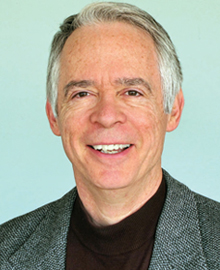We’re all familiar with the axiom “first things first.” Simply stated, it means that there is an orderly and necessary sequence to how things unfold. When we are impatient or want to do things our own way, we may find ourselves frustrated by this principle. But if we’re wise, then we’ll appreciate that the “orderliness of unfoldment” exists as a universal law that makes it easier to find our way.
Think about an analogy from mathematics. If you want to learn algebra, you cannot just jump in and start solving complex algebraic equations. First, as a pre-schooler, you learned your numbers; then, as a grade-schooler, you learned to add, subtract, multiple, and divide. Each step in your learning built upon the previous one. There was an orderly unfoldment of your mathematical understanding that eventually prepared you to start dealing with more complex problems.
Many traditions of transformational psychology articulate examples of these sequences of unfoldment. One example comes from the teaching of Gurdjieff and Ouspensky—one of the few writers explicitly recommended in the Cayce readings. These two teachers proposed a “Law of the Octave” which suggests that the seven musical notes that repeat themselves as an octave on a keyboard (i.e., do-re-mi-fa-so-la-ti) exhibit a powerful analogy for how human consciousness progresses through reliable stages of unfoldment. “Do” corresponds to giving “valuation” to something in our lives, such as making teachings about spiritual development of vital importance to us. “Re” corresponds to the “application” of teachings—not just valuing them and studying them, but actually starting to act on them. “Mi” corresponds to what inevitably arises when we start trying to apply principles of personal transformation: we encounter resistances from within ourselves, an internal push-back that doesn’t want to change.
This Law of the Octave goes on to say that we reach a critical juncture when trying to reach the fourth stage. Consider how there is no black key on the piano keyboard between “Mi” and “Fa.” There’s a “missing semi-tone” and what’s required is an internal force that lifts our consciousness to “Fa”—a “shock” that comes from a meditation-like shift to remember one’s true self—one’s spiritual essence. Only then, at this fourth stage of the sequence, does something entirely new begin to emerge out of our being.
So, what is the equivalent teaching in the Cayce material? Perhaps it’s the A Search for God (ASFG) sequence—a progression of lessons that can lead to personal transformation. Of course, Cayce’s growth sequence has far more steps than the repeating seven-fold sequence of a musical octave. But if we focus on the first four steps of ASFG, we’ll find something equally insightful. Let’s use the process of discovering your soul’s purpose as an illustration. How could the first four lessons collectively create a pattern to follow in finding one’s mission?
Cooperation was first, because no further development is possible unless we learn how to act in harmony with God, ourselves, and others. Cooperation means more than just getting along with other people. It ultimately leads to being able to love and appreciate (and cooperate with) all the parts of oneself. That will be a starting point—just as the Law of the Octave starts with “do.”
Self-knowledge comes second in the ASFG sequence. We’re reminded of the admonition of the Delphic Oracle in ancient Greece: know thyself. Anything else we try to do on the spiritual path rests on shaky ground unless we have some beginnings of authentic self-knowledge with which to proceed. Total self-realization isn’t demanded at this early step—simply an emerging understanding of who we really are.
Once we start to have some revelations about our true character and individuality, then we can effectively choose values, goals, and ideals that will lead to spiritual growth. The ASFG readings on this third step warned how easily we can go wrong. Even with the best of intentions, it’s easy to set ideals based on misperceptions of ourselves, unless we’ve done the work of self-knowledge.
The fourth step is faith. In the Cayce philosophy this means the actual experience of unseen reality. It’s not just having really strong beliefs, as important as that may be. Faith is a matter of having direct encounters with the realm of the soul. Here is where we open ourselves to have an experience of a calling from deep within—the invitation to see and embrace a soul-purpose. And if we try to jump right to “hearing the call” without having first done the work of steps one through three, then it won’t work for us, any more than we can start our mathematical training by trying to solve tough algebra problems.
Excerpt from the Jul-Sep 2016 issue of Venture Inward magazine available to A.R.E. Members at EdgarCayce.org/members. Learn more about A Search for God (ASFG) Study Groups.






